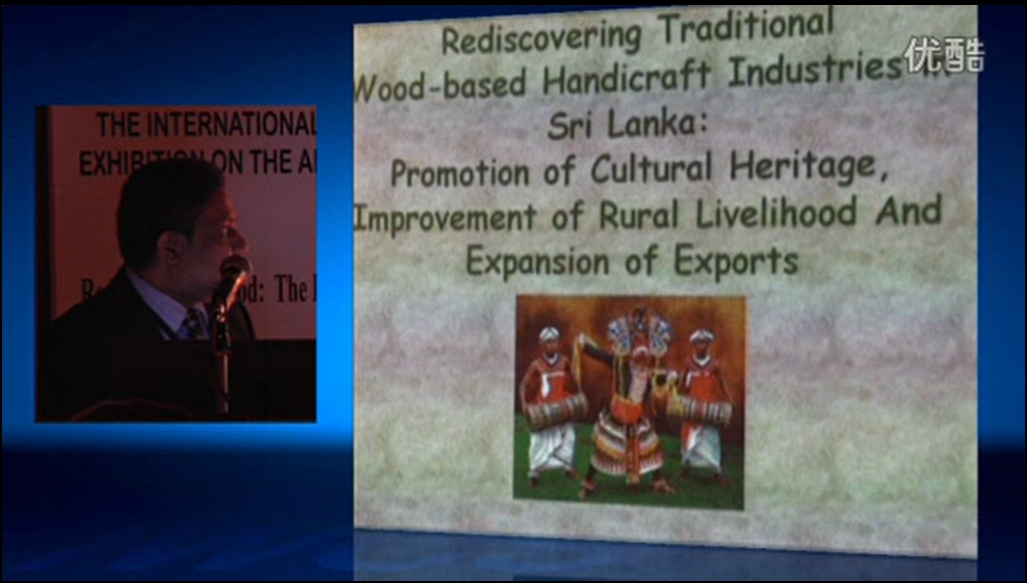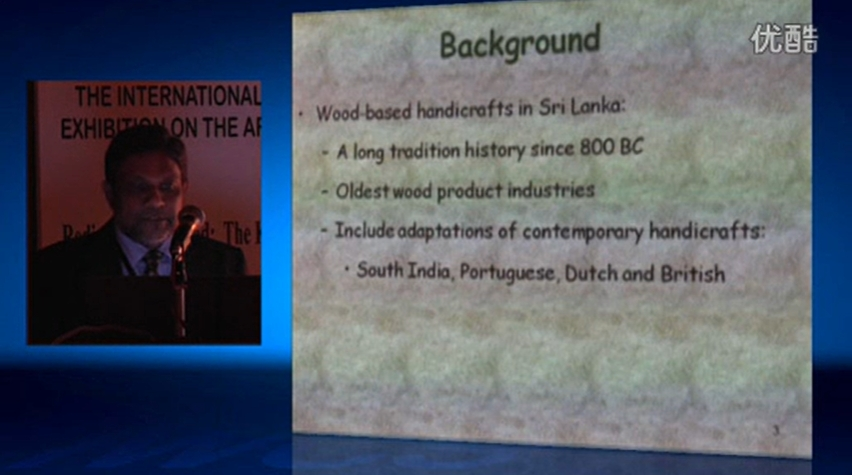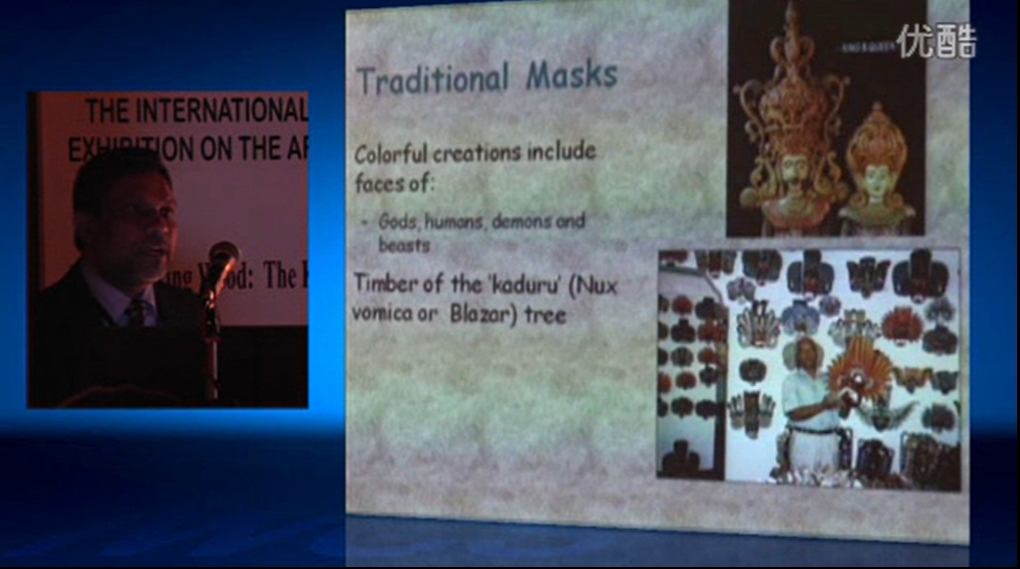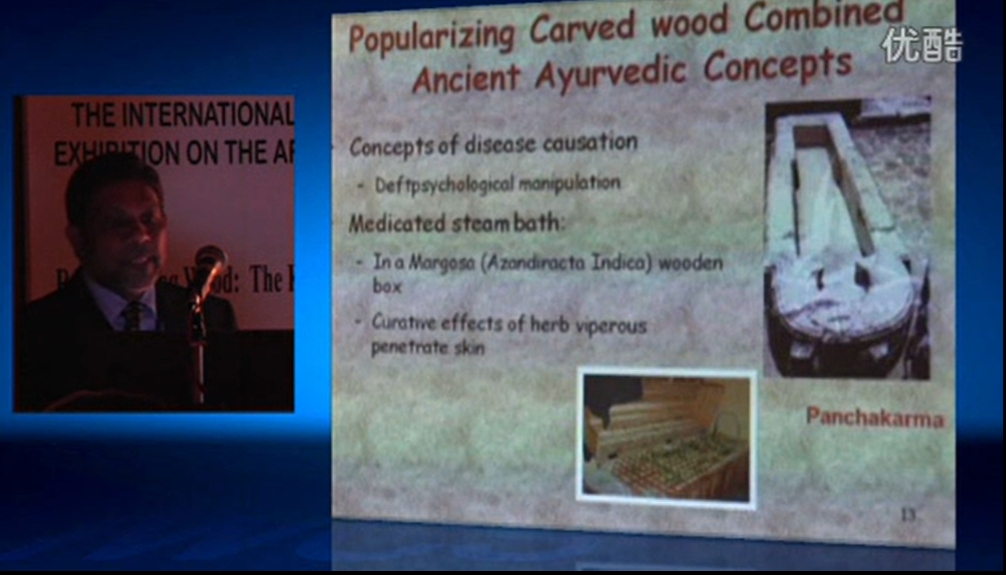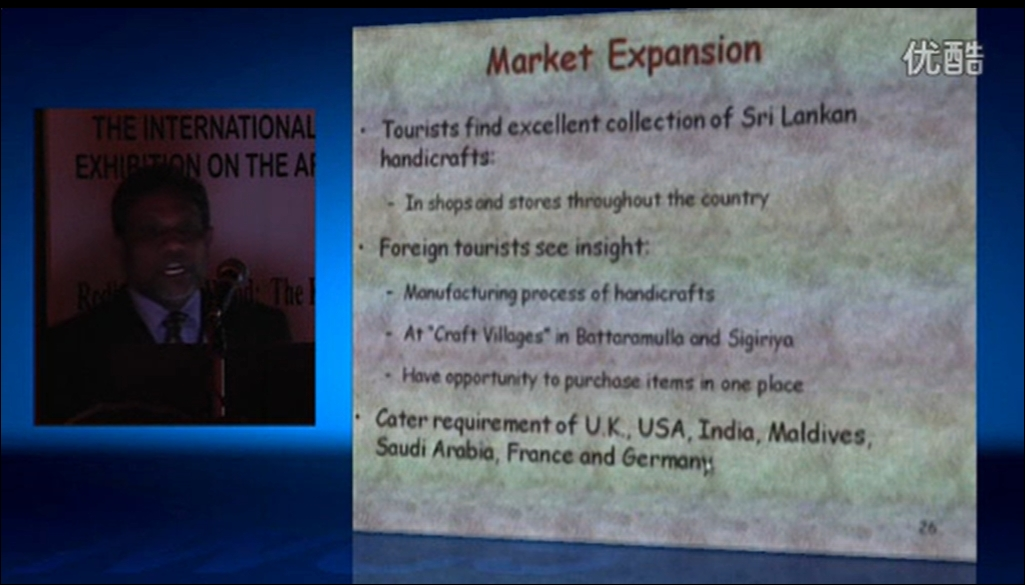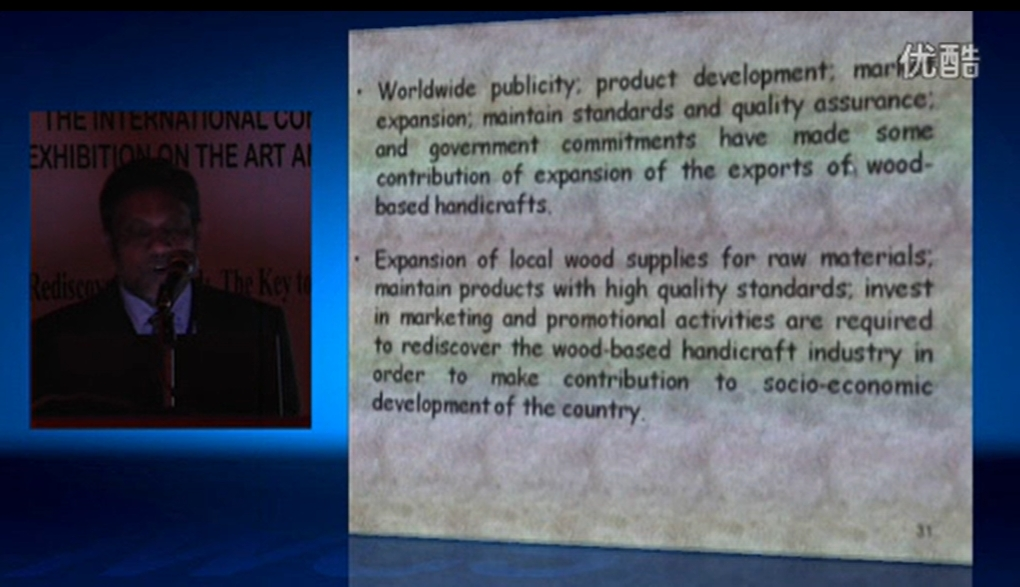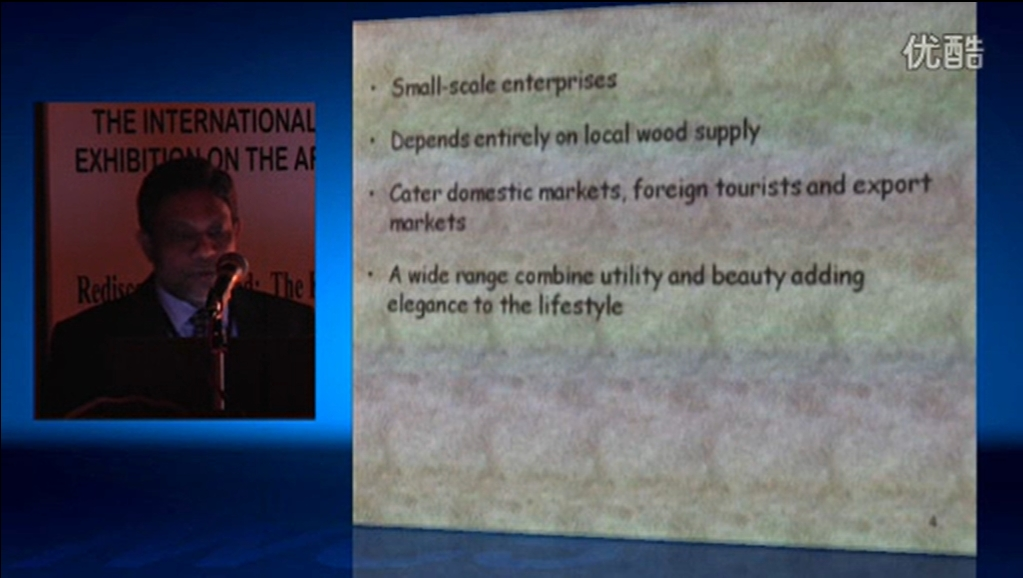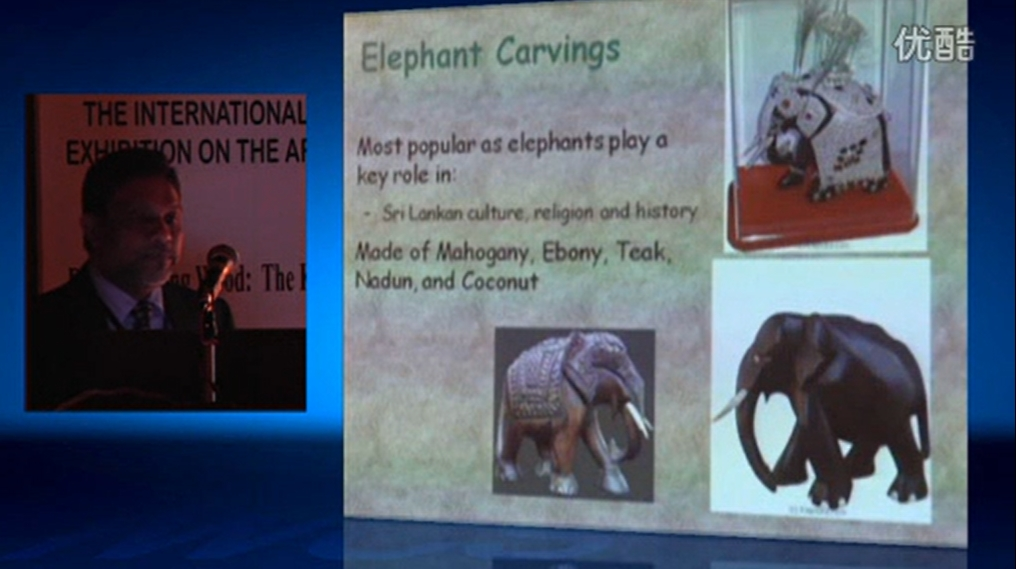活动名称:木艺木趣国际研讨会暨展览会
时间地点:2011年10月20日,印度班加罗尔J N Tata多功能礼堂
演讲嘉宾:Mangala De Zoysa
演讲题目:Rediscovering traditional wood-based handicraft industries in Sri Lanka: Promotion of cultural heritage, improvement of rural livelihood and expansion of export
摘要:The handicraft sector has become a major contributor to sustainable economic development and the eradication of poverty in local economies. The global handicrafts industry accounts for a market share of more than US$100 billion. Wood-based handicraft industry is one of the oldest wood product industries in Sri Lanka. With the development of the export industry, the demand for wood-based handicraft products has been increasing rapidly during last few years. One of the main objectives of the establishment of Ministry of Traditional Industries and Small Enterprises Development was the development, marketing and export promotion of handicrafts. Hence the paper review the relevant literature and attempts to discuss the rediscovering traditional wood-based handicraft industries in Sri Lanka in terms of promotion of cultural heritage; improvement of rural livelihood; and expansion of exports.
Sri Lanka‘s cultural heritage and skilled craftsmanship have had a great influence on the production of handicrafts using of natural raw materials which is essentially a cottage industry. Wooden mask are used for curative rituals and for demon propitiation. Wooden crafts combines ancient Ayurvedic concepts of disease causation. Wide verity of traditional drums and musical items are among the other interesting wood-based handicrafts. The ebony carvings of Lord Buddha and elephants are popular in Sri Lanka. All the industries are highly diverse and depend almost entirely on the local wood supply for raw materials, and employ a large number of rural people. Manufacturers adapt to the varying requirements of buyers. These handicrafts are best purchased from the villages or from the government run "Laksala" outlets. Wood-based handicraft industry is presently catering to the domestic and overseas markets with the involvement and investment of the private sector. Sri Lankan exporters have adopted testing handicraft prior to cross-boundary transportation. Sri Lanka has adopted flexible policies in order to encourage more foreign investment and exports. Sri Lanka regularly participates in leading international trade fairs. It could be concluded that the wood-based handicraft industries in Sri Lanka not only make some contribution but also have high potential to promote the cultural heritage, improve the rural livelihood and expansion of the exports.
关键词:Wood-based handicraft, cultural heritage, rural livelihood, exports
Mangala De Zoysa, University of Ruhuna, Mapalana, Kamburupitiya, Sri Lanka.


 8,097
8,097